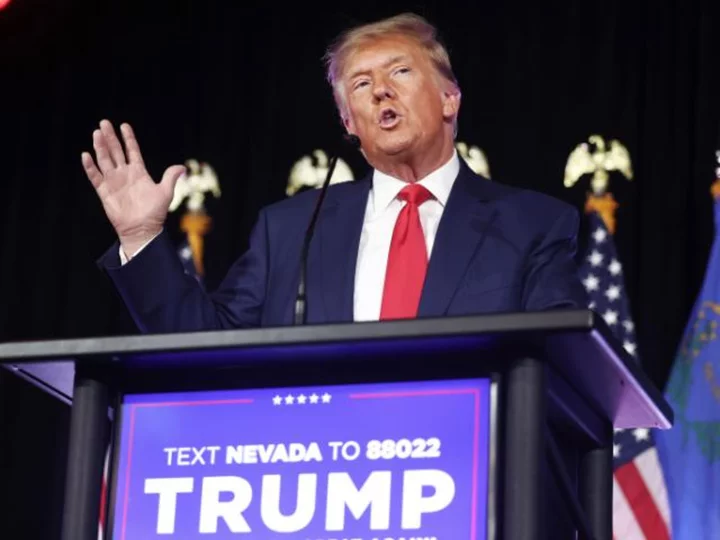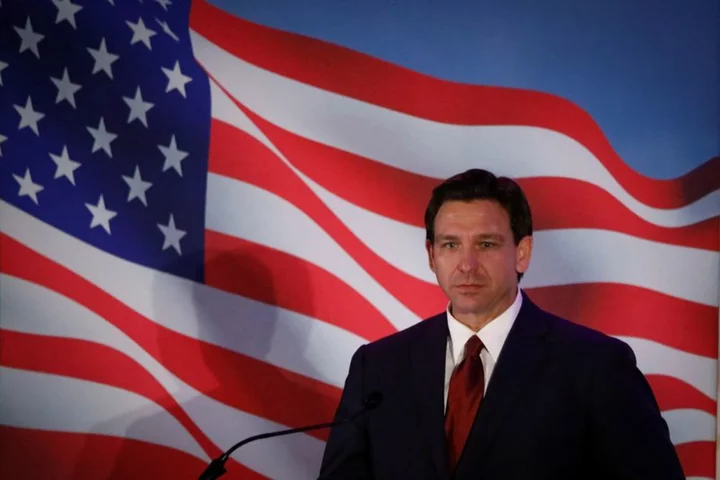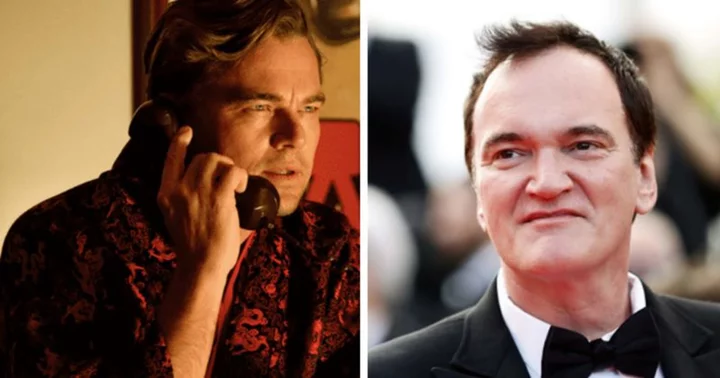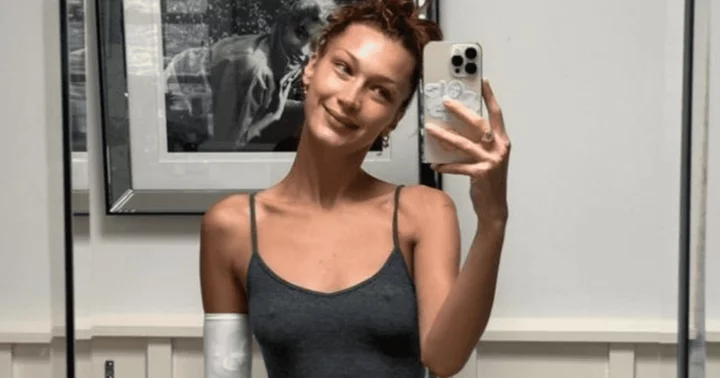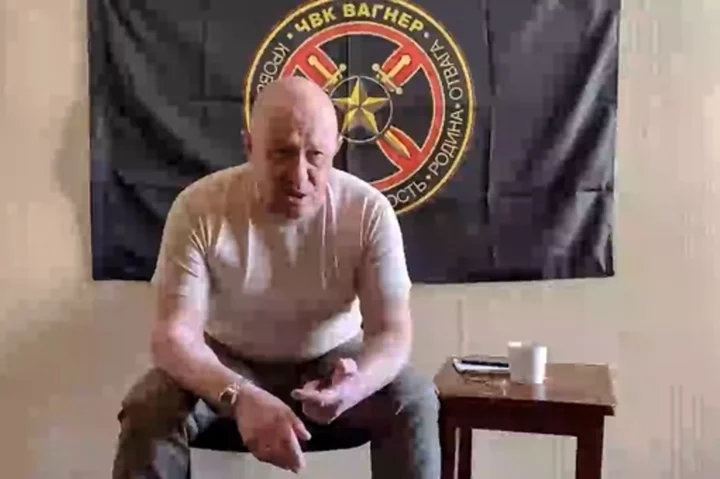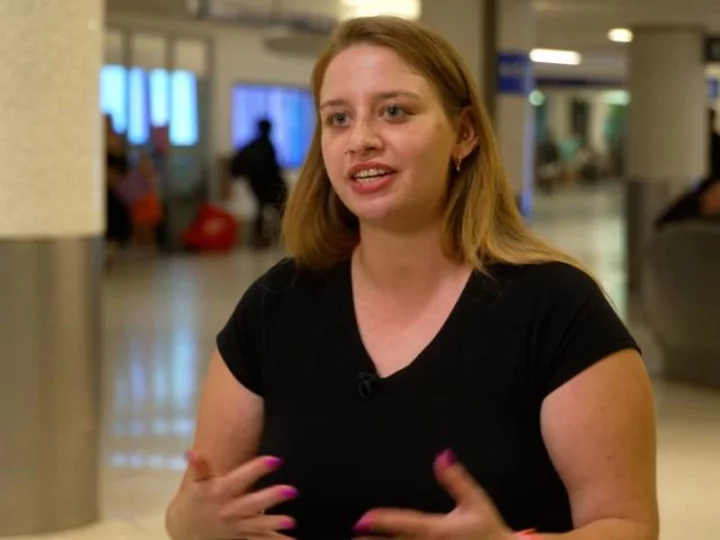If special counsel Jack Smith has his way, Donald Trump will be spending his weekdays in January in a Washington, DC, courtroom rather than barnstorming ice-bound Iowa and New Hampshire with his closing arguments before the critical first 2024 nominating contests.
Smith on Thursday proposed that a trial over Trump's attempts to overturn the 2020 election begin on January 2, 2024 -- two weeks before the first-in-the-nation Iowa GOP caucuses -- provoking an angry eruption from the ex-president. Prosecutors moreover expect their case to take up to six weeks, meaning that Trump's campaign would be severely disrupted ahead of a Super Tuesday blitz of 16 contests on March 5.
Smith's bold move on Thursday was the most startling indication yet of how the 2024 election has now become inextricably entangled with Trump's battle to avoid serial felony convictions. The campaign trail will run as much through various court rooms as through the fabled rituals of an American election year. And the political, electoral and judicial institutions of a nation left internally estranged by Trump's tumultuous presidency and its polarizing aftermath are now facing yet another of the existential tests that Trump has posed since descending his escalator in 2015.
Prosecutors argued Thursday that a speedy trial was feasible since they were prepared for a swift and fulsome handover of evidence in the discovery process. Furthermore, the events surrounding Trump's denial of his 2020 election defeat have been in the public domain for years. They also argued that the extraordinary and historic nature of the charges regarding an historic attempt to derail US democracy weighed in favor of moving quickly.
"Most importantly, a January 2 trial date would vindicate the public's strong interest in a speedy trial — an interest guaranteed by the Constitution and federal law in all cases, but of particular significance here, where the defendant, a former president, is charged with conspiring to overturn the legitimate results of the 2020 presidential election, obstruct the certification of the election results, and discount citizens' legitimate votes," Smith's team told the court.
Given that Trump is the GOP front-runner for the next presidential election, while still denying the legitimacy of the previous one, there is a strong moral argument that the national interest lies in concluding a trial as quickly as is fairly possible. Trump is entitled to be considered innocent until proven guilty, like all criminal defendants. But it is also possible that voters next year could be asked to decide whether the former president, who could theoretically by then be a convicted felon, is fit to swear to preserve, protect and defend the Constitution and the rule of law ahead of a new White House term.
Smith's push for a swift trial timetable was based on a set of legal criteria he laid out, but which CNN legal commentator Elie Honig called "extraordinarily aggressive." It would give Trump's team less than five months to get ready for trial, and to sift through potentially hundreds of thousands of pages of documents, based on a schedule for jury selection in December, before the holiday season.
Tim Parlatore, a former Trump attorney, told CNN Thursday that the strongest defense argument would be that there was no way it could be ready in just a few months, noting that any sense that it was pushed to go to trial prematurely could factor into any post-trial appeals.
"That's a stronger argument (than) just to rely on the Iowa caucus date," Parlatore said.
While the law does not conform to the professional or political needs of the accused, Smith's preferred date -- which would also be a full three years after Trump's attempts to thwart Joe Biden's 2020 victory -- will fuel claims by Trump's supporters that the indictments against him so far represent a politically motivated attempt to prevent him from recapturing the White House.
Trump responded with a furious post on his Truth Social network, blasting Smith as "deranged" and arguing that while the trial should not be taking place at all, it should only happen after the 2024 election. "Only an out of touch lunatic would ask for such a date, ONE DAY into the New Year, and maximum Election Interference with IOWA!," he wrote.
It is up to the presiding judge in the case, Tanya Chutkan, to set dates for a raft of pre-trial hearings and the main event itself. With her first moves in the case, Chutkan has shown a desire to avoid untimely delays. But Trump's team has already warned it may need up to three-and-a-half years to prepare his defense. The ex-president has a clear interest in delaying proceedings until after the election since if he wins the White House, he will reacquire the status and executive powers that might lead to a freezing of federal cases against him. And if another Republican captures the presidency, they would face extreme pressure from GOP voters to offer Trump a pardon for any federal convictions.
The first move in a bidding war over trial dates
Despite Smith's request, it's unlikely the trial will begin at the turn of the year. His forceful opening gambit on the date suggests a strategy to ensure that any compromise date the judge arrives at will still be relatively early in 2024.
"I think it is a starting point and that the judge will probably accommodate the defendant in the case in terms of setting a trial date that is a little bit later," said Ryan Goodman, a former special counsel at the Defense Department. "Maybe it gets pushed back a month or two."
But Trump's 2024 calendar is already filling up with court dates. He is due to go on trial in March in Manhattan in a case arising from a hush money payment to an adult film actress. A judge in Florida has set a May target for a trial arising from his mishandling of classified documents at his Mar-a-Lago resort after leaving the White House. That date might slip after Smith last month brought three new charges against the ex-president and added another co-defendant to the case.
Trump has pleaded not guilty to all three indictments so far. But his legal quagmire may be about to deepen. He is expected to find out as early as next week whether he will also be indicted over his pressure on officials in Georgia to overturn Biden's 2020 victory there.
The never-before-seen spectacle of a presidential candidate facing multiple criminal trials in an election year will not just strain national unity and the court and political systems. It presents a unique challenge for Trump's Republican challengers, who are seeking to defeat a former president whom many GOP voters revere and believe is a target of political persecution. Iowa and New Hampshire primary campaigns that unfold with the front-runner stuck in court in Washington would almost certainly be overshadowed. And if current trends hold, Trump could expect a popularity boost from a trial, which he is certain to portray almost as a political matyrdom.
Still, the extraordinary personal and financial strain on Trump from what could be months in court on serious charges may create campaign reverberations that cannot yet be predicted. Having a candidate in the dock could also concentrate the minds of some Republican voters who worry about the electability of a potential nominee who could become a convicted felon. That concern could play into the hands of a candidate like Florida Gov. Ron DeSantis, who is arguing that Trump's legal complications are too much of a distraction heading into a general election.
Trump's lawyers have already tried out their trial date arguments once
Trump's lawyers and prosecutors will be in court for the first hearing before Chutkan on Friday, to address how sensitive evidence in the election subversion case will be handled, given Trump's penchant for waging his legal fights on social media. The question of a trial date will likely wait for a subsequent hearing. The judge has indicated she plans to set a date before the end of the month and Trump's team is almost certain to seek a significant delay, possibly until after the November 2024 election.
Arguments likely to unfold in this case have already played out before Judge Aileen Cannon in the classified documents case in Florida. In seeking a trial date after the election, Trump's attorneys argued that the proceedings represented a unique challenge to American democracy since the prosecution was taking place under the administration of a sitting president and involved his chief political rival. They also warned that it would be impossible to select an impartial jury while a presidential election was taking place. The ex-president's team argued that as the likely Republican nominee, his campaign would require a tremendous investment of time and energy that would go right through Election Day on November 5, 2024.
Smith had little tolerance for what many analysts saw as transparent delaying tactics.
While dismissing Trump's evidentiary arguments -- including over the difficulty of conducting a trial with so much classified information -- prosecutors rejected the claims that justice could not be served in an election year. "Our jury system relies on the Court's authority to craft a thorough and effective selection process" and jurors' capacity to decide cases on the evidence rather than personal preferences, Smith's team argued in a filing to the court. They also ridiculed the claim that Trump was effectively too busy campaigning to stand trial. "Many indicted defendants have demanding jobs that require a considerable amount of their time and energy or a significant amount of travel," they said.
The dueling filings in the classified documents case underscored a tug of war that's about to unfold between ensuring Trump gets the same treatment before the law as any other American and that he does not get any extra accommodation simply because he's running for president.

